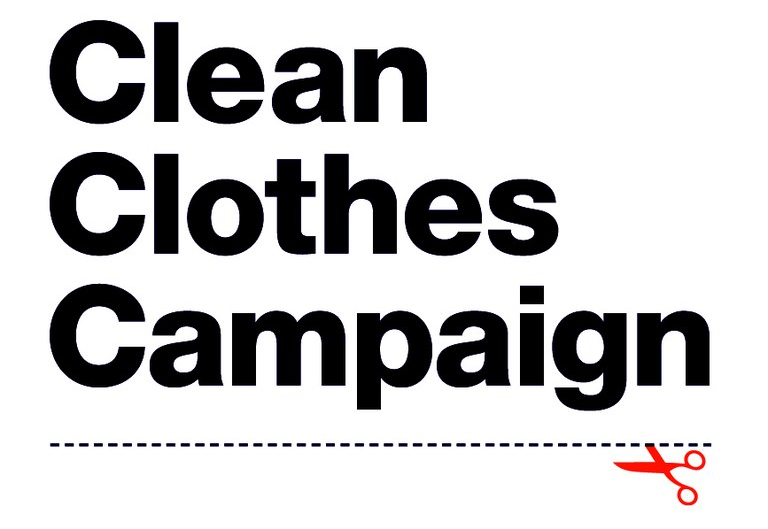Search results
13 results
Sort by:
Leading Sports Brands, Unions, NGOs Form Working Group
A month before the start of the Beijing Olympics key sporting goods brands including Nike, adidas, New Balance, Umbro and Speedo are forming a ground breaking joint working group with trade unions and NGOs to explore amongst other issues how to promote trade unionism and collective bargaining as well as improving wages across the sector.
Vancouver Olympics: Sportswear Brands in Trouble
Despite making positive statements at the time of the 2008 Olympics about cleaning up an industry rife with rights violations, major sportswear brands have taken little action since to improve wages and working conditions for the workers who produce their goods.
Playfair 2012 launches campaign for an ethical London Olympics
On Saturday 27 february, As the Olympic torch was handed on from this year's Winter Olympics in Vancouver to London, the Playfair 2012 coalition launched a campaign for an ethical London Games.
Play Fair Campaign launches in Brazil ahead of 2014.
An international conference organised by "Play Fair" and the Building Workers' International has opened in Rio de Janeiro, Brazil. The Conference will launch the BWI Campaign around the World Cup 2014, as well as the Olympic Games 2016 Play Fair Campaign.
Historic pact strengthens sportswear workers union rights
A historic agreement which follows two years of negotiations after the Playfair 2008 campaign was signed. The pact which addresses core labour rights issues in Indonesian factories was signed by Indonesian textile, clothing and footwear unions, major supplier factories and the major sportswear brands, including Adidas, Nike and Puma.
Toying with workers' rights
The International Olympic Committee are today under pressure to take a stand on sweatshop labour as a report showing widespread exploitation of workers producing merchandise for the London Olympic games is released.
Abuses still exist in Olympic supply chains, says Playfair 2012
Workers making Olympic sportswear for London 2012 for top brands and high street names including Adidas and Next are being paid poverty wages, forced to work excessive overtime and threatened with instant dismissal if they complain about working conditions, according to a new report from the Playfair 2012 campaign published today.
Light the Flame for a fair Olympics
Summer is almost here and with it the Olympic Games in London. The Olympics Games aims to “build a better world through sport” and promotes values of fair play, respect and equality Unfair play, disrespect and inequality aren’t values we usually associate with the Olympics. But for some workers making Olympic goods and sportswear, this is what the Olympic ideal really means.
Adidas and Nike pay record-breaking amounts to footballers, but deny decent wages to women stitching their shirts
While millions of people are getting ready to cheer their favorite teams during the Football World Cup, a report by Éthique sur l’étiquette and Clean Clothes Campaign, ‘Foul Play’, reveals that adidas and Nike, major sponsors of the global event, pay poverty wages to the thousands of women in their supply chain that sew the football shirts and shoes of players and supporters.
Sweet FA? Football Associations, workers' rights, and the World Cup
The world's Football Associations makes millions from sponsorship and licensing arrangements, while their sponsors are expecting hundreds of millions of pounds in additional revenue from World Cup goods. Meanwhile, the people stitching the footballs, sewing the shirts and glueing the boots that will earn this money are working late into the night, six or seven days a week, for poverty wages. Those that attempt to form trade unions to try to improve their working conditions are persecuted and often lose their jobs. This report gives examples of these violations of workers rights. Written by the TUC and Labour Behind the Label, 2006.
Play Fair at the Olympics Fila case study
Based on research interviews conducted in July 2004, it shows how workers’ lives are affected by current practices in the industry and gives a sense of what the personal impact could be if the industry made a concerted effort to respect human rights. It does this by presenting an in-depth look at the lives of workers in just one factory, the PT Tae Hwa Indonesia factory (hereafter “Tae Hwa”) in Tangerang in West Java.
From Code Compliance to Fair Purchasing Practices: Some Issues for Discussion
Paper written for CCC Round Table on Purchasing Practices, May 2005. This paper discusses the main elements related to purchasing practices and their relation to the CCC’s campaign activities. It's based on experiences from the Play Fair campaign concerning purchasing practices. The paper concludes with questions for further discussion. The Play Fair campaign was the first public campaign in which purchasing practices emerged as an important element. This was certainly important as both a learning experience and as a way of getting the topic discussed. However, it is important to raise some questions about how far campaigners should go down this road.
The Play Fair at the Olympics Campaign: an evaluation of the company responses
In the six-month up to the Olympics Games in Athens August 2004, the Play Fair alliance approached sportswear companies, the World Federation of Sporting Goods Industries (WFSGI), and the International Olympic Committee (IOC) with a number of recommendations and suggestions to improve working conditions in the global sportswear Industry. This report from June 2005 gives an overview of how Asics, Fila, Kappa, Lotto, Mizuno, Puma and Umbro responded to the Play Fair 2004 campaign.
